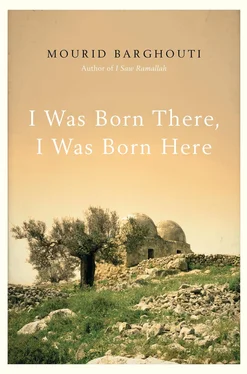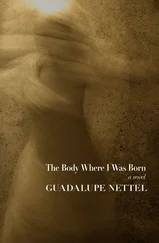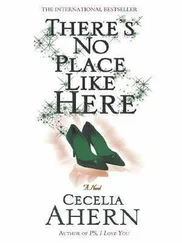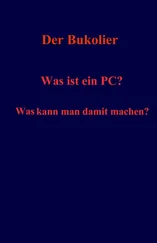Mourid Barghouti
I Was Born There, I Was Born Here
Forgive me if what has seemed little to you, to me is all.
— José Saramago
‘Come Closer’ Foreword by John Berger
This book, with its fury and tenderness, its close observation and cosmic metaphors, is wild. Reading it, you follow graphically the experience of the Palestinian people during the last sixty years, and, at the same time, you partake of some of the most ancient recourses of the human imagination when faced with collective suffering and humiliation.
It has been written by the distinguished poet Mourid Barghouti, who is also the father of an honoured poet, Tamim Barghouti. It’s a book that begs for an answer to the question: why write poetry? And, in begging, it gives its own lacerating, literal and sometimes lyrical answer.
I’ve read no other book in which poetry is so interleaved with the problems and shit (such as identity cards) of daily life, or in which a working poet — either the father or son — is felt to be so close to those for whom their poetry speaks. It comes from the heart of an endless tragedy where jokes are one of the principal means of survival. It redefines in such conditions what is “normal”.
It’s also fine to die in our beds
on a clean pillow
and among our friends.
It’s fine to die, once,
our hands crossed on our chests
empty and pale
with no scratches, no chains, no banners,
no petitions.
It’s fine to have an undusty death,
no holes in our shirts,
and no evidence in our ribs.
It’s fine to die
with a white pillow, not the pavement, under our cheeks.…
What has happened and is happening to the land of Palestine and its people is unclassifiable. None of the historical terms such as colonization, annexation, invasion or elimination are precise enough. The word ‘Occupation’, which is generally used, has been given a new vast meaning and this book spells out that meaning and the extension of what it means.
Perhaps it is for this reason that the book itself is unclassifiable. It’s a book of heartrending stories, a book about poetics, a personal memoir, the history of a family, a journal of confessions, an uncompromising political tract attacking the state of Israel, the corruption of the so-called Palestinian Authority, and the self-serving dictatorships of the surrounding Arab countries. It is also a book of love — love for all those who, although powerless, somehow continue to live with dignity. With courage, too. Yet dignity offers not only an example, but also a shelter. These pages demonstrate how it does so.
The reader is brought face to face (like people come close together in a very small shelter) with what is happening in Palestine today (every day), which is inseparable from what happened yesterday and what people fear will happen tomorrow. The media never refer to what you discover here. Place names such as Jenin, al-Khalil, Rafah, Hebron and Qalandya become dense with experience.
This, however, is only part of what the book offers. There is something else. Mourid Barghouti’s form of narrative insists that lived moments when they are momentous contain something that can be considered eternal, and that such moments, however brief and trivial they may appear to a third eye, join together and form a necklace called a lifetime. Living as we do in a consumerist culture, which recognizes only the latest and the instantaneous, we badly need this reminder. Thank you, Mourid.
Here we are, safely arrived in Jericho, as he promised. I still can’t believe we made it. Maybe it was luck, or the cell phones, or the wiliness of the villagers and shepherds, or maybe — most likely — fate hasn’t made up its mind yet to let Palestinians die in road accidents. I think most, though, about our driver, Mahmoud.
I stand waiting for him in the hotel porch in Ramallah. He arrives more or less on time. This is nothing unusual for Darwish Tours, who are known for their punctuality. He leaves the taxi’s engine running, steps down into the light rain, and comes toward me.
“Mr. Barghouti?”
He picks up my small suitcase (my suitcase is always small here because of the checkpoints) and hurriedly creates a space for it in the trunk. It’s good that he doesn’t lift it up onto the roof of the taxi along with the other luggage and good that he’s picked up the six other passengers first so that we won’t waste time searching for their addresses among the hills and valleys of Ramallah. I take my place in the yellow taxi and tell myself it’s a good start to the day.
He sets off for Jericho without uttering a word, like someone hiding a secret and waiting for the right moment to tell it. Clearly he’s decided to avoid the Qalandya checkpoint. The windshield wipers are no good at removing the imprint of the fog, which has taken on the color of zinc, and are losing their race with the rain, which is getting harder. The vehicles in the street are few, the pedestrians fewer.
We leave the confines of Ramallah.
Everything appears normal until he gets a call on his cell phone. He finishes it in seconds and increases speed noticeably. After a few kilometers, he leaves the main road and enters a village that I’m seeing for the first time and whose name I don’t know but am too embarrassed to ask. Its one narrow street curves, then twists and turns among the houses before we leave it once more for the paved highway.
“Good morning, everyone. My name is Mahmoud and this is today’s last taxi for the bridge. Israel has informed foreign diplomats the attack will take place tonight or tomorrow and told them to get out of harm’s way. All the bastards care about is the foreigners; we’re not human. The army’s on alert, the roads are closed, and there are flying checkpoints everywhere. The weather as you can see is bad but we’ll definitely make it to the bridge, with God’s help. Coffee? Pour a cup for everyone, Hajj—‘the great man lives to serve his people,’ as they say. Please, have some coffee.”
The passengers don’t appear particularly upset at the news of the impending attack announced by Mahmoud. In fact, the fat passenger sitting in front of me in the middle seat comments sarcastically: “As if the film needed more action! Every day they kill us retail and once in a while they get the urge to kill us wholesale. Big deal! They’ve launched a hundred attacks before and it’s done them no good. They’re really stuck. Like they say, ‘Stupidity is trying what’s already been tried and expecting different results.’ The only thing they’re good at is shooting and killing. Each time they attack, go bam-bam-bam, drop bombs from airplanes, and leave. What’s the point?”
“It’s a farce!” says his neighbor. “When you see them invading our villages and camps, you’d think they were off to conquer China, though they could arrest any of us any time, including Yasser Arafat, or expel him from the country, or imprison him, or kill him, without tanks or armored vehicles or F-16s. Who’d stop them?”
He falls silent for a moment. Then he says, as though to himself, “Anyway, their project isn’t going well, I can tell you. An Israeli state at our expense isn’t working out for them. How do they think they’re going to get away from us? Do they suppose they can kill us all? The project’s dragged them into a mess, there’s no end in sight, and they know that each year gets them in deeper. You’re right, they’re really stuck.”
I, who for long years have been away from these people, from my countrymen and the details of their daily lives, cannot make light of the plans of a terrifying individual such as Sharon to invade our cities and our villages. To them, though — the inhabitants of these same cities and villages, who haven’t been distanced by successive exiles — everything has become food for jokes. Is it familiarity or stoicism? Is it a confidence built up by a culture of living inside the details or a sign of the resistance they embody simply by remaining in place?
Читать дальше











